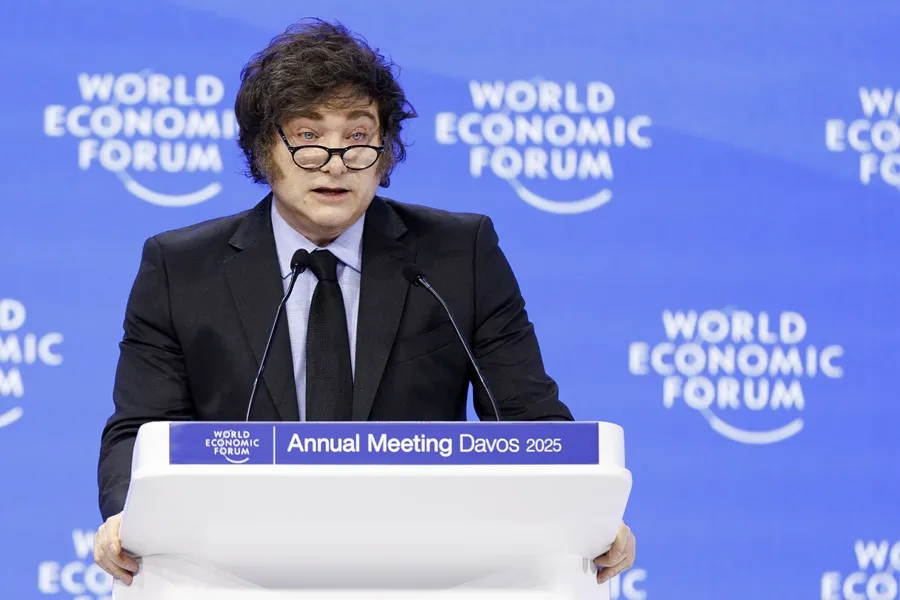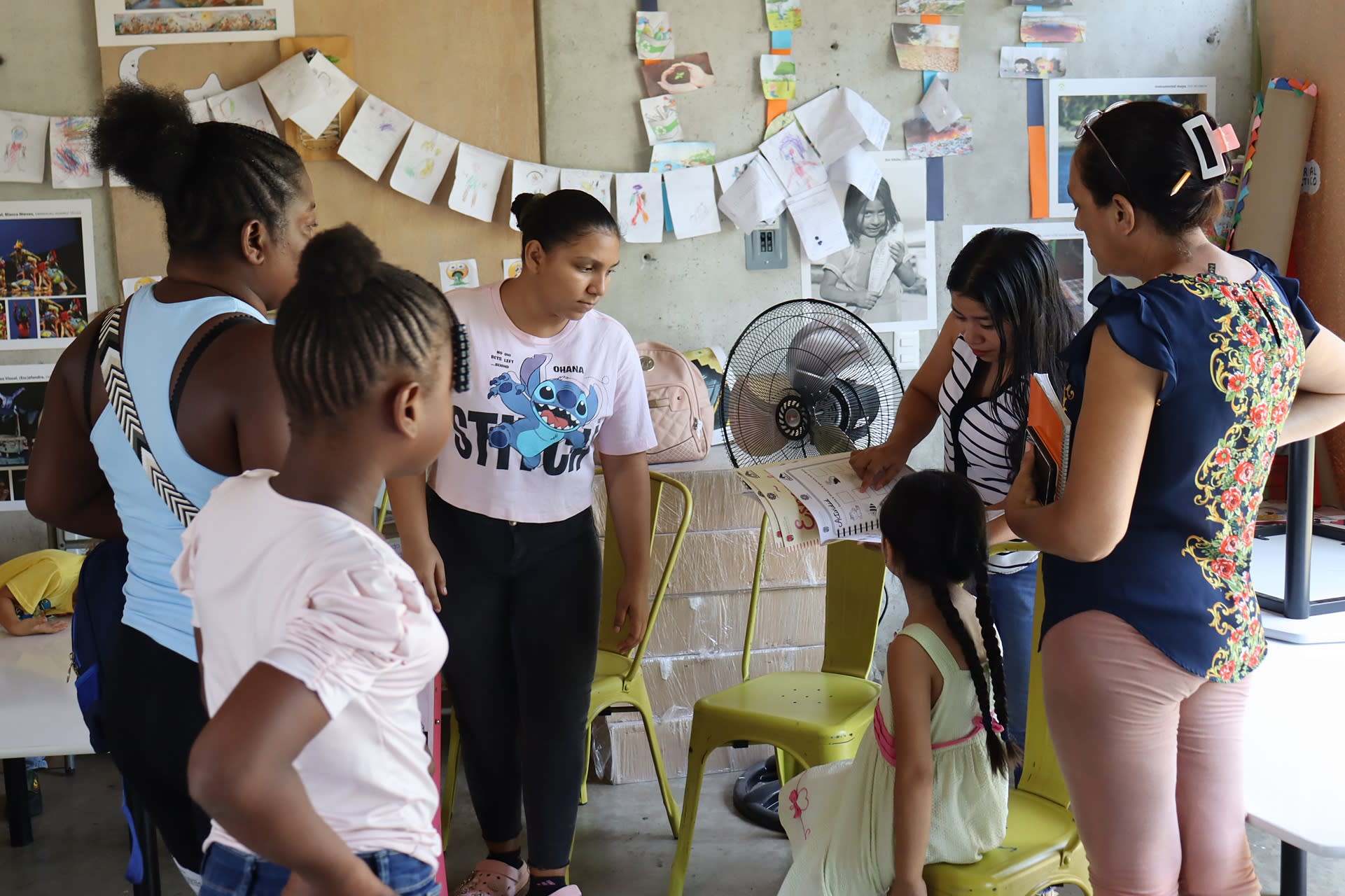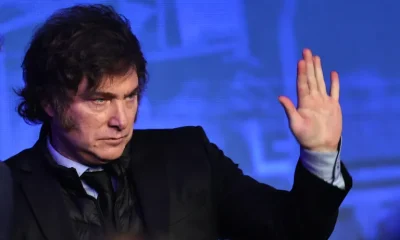International
Milei assures that the battle for freedom “is not won” and asks not to “go down”

Argentine President Javier Milei said this Thursday at the Davos Forum (Switzerland) that the battle of political leaders who fight for freedom “is not won” and that it will not end until most Western countries “embrace the ideas of freedom.”
“Our battle is not won,” Milei said in a speech before the plenary, in which he said that it will not come to an end until most Western countries “embrace the ideas of freedom,” and assured that until then they should not “go down”.
Milei participates for the second time in the World Economic Forum (WEF), which he attended in 2024 just a month after his inauguration, and recalled that, since then, he no longer feels alone because the world “has embraced Argentina” and his country has been “a global example of fiscal responsibility”, “of how to end the problem of inflation”, and of a new way of doing politics.
Also, he added, because throughout this year he has found “companions in this fight for the ideas of freedom in all corners of the planet,” among whom he has cited the “wonderful” Elon Musk, the “fierce Italian lady” Georgia Meloni, the Hungarian Viktor Orbán, the Salvadoran Nayib Bukele and the Israeli Benjamin Netanyahu and Donald Trump, in the United States.
“Slowly an international alliance has been formed of all those nations that want to be free and that believe in the ideas of freedom,” he added.
In front of a practically full auditorium, in whose front row was sitting his sister and general secretary of the Argentine Presidency, Karina Milei, the president accused the Davos Forum, but also supranational organizations such as the European Union, of promoting the ‘woke’ ideology, which he described as “sinister and murderous”.
“No one can play innocent here. They have worshiped a sinister and murderous ideology for decades as if it were a golden calf and they have moved heaven and earth to impose it on humanity,” he said.
At the same time, he said that he assured that multilateral credit agencies “have been an extortionative arm” and many national states, and in particular the EU, “have been and are an armed arm.”
In his speech he addressed the leaders of the world, both business and politicians, to whom he assured that the political formulas of recent decades “have failed” and “are collapsing on themselves” and “the script of the last forty years has been exhausted”.
“It’s time to get out of that script and the time to be bold and encourage yourself to write your own verses, because when the ideas and texts of the present say all the same and say wrong things, being brave consists precisely in being extemporaneous, consists of going back, not being dailled,” he added.
After assuring that that is what Argentina is doing, “return to liberalism,” and trusting that this is what Trump will do in the United States, he invited all the great free nations of the world to do so, which he asked to “stop in time what, in all lights, is a path that leads to catastrophe.”
“What I am proposing is that we make the West great again,” he concluded, alluding to the slogan of the Republican president.
Central America
Trump Administration Asks Supreme Court to Block Return of Deported Salvadoran

The Trump administration on Monday asked the U.S. Supreme Court to block a lower court order requiring the return of a Salvadoran migrant who was mistakenly sent to a maximum-security prison in El Salvador, despite having legal protection from deportation.
The U.S. government has until Monday to bring Kilmer Armado Ábrego García back to the United States, as ordered by Judge Paula Xinis in a Maryland court.
According to The Washington Post, the administration argues it lacks authority to comply because Ábrego García is currently in Salvadoran custody.
The U.S. had appealed Judge Xinis’ ruling to the Fourth Circuit Court of Appeals, but the court declined to act immediately—prompting the administration to take the case to the Supreme Court. In its filing, the government stated that “the Constitution entrusts the President, not federal district courts, with the conduct of foreign diplomacy and the protection of the nation from foreign terrorists, including through deportation.”
Ábrego García, a resident of Prince George’s County, Maryland, and married to a U.S. citizen, came under scrutiny in 2019 after an informant claimed he was a member of the MS-13 gang (Mara Salvatrucha).
Although he was initially slated for deportation, a judge later granted him a stay of removal after he requested asylum, according to the lawsuit.
Nevertheless, U.S. Immigration and Customs Enforcement (ICE) detained him on March 12, claiming his status had changed, and sent him to a detention center in Texas.
International
Teachers in Southern Mexico Bring Education to Stranded Migrant Children

Teachers in southern Mexico have created a program to provide classes for migrant children stranded in the region, following a year-over-year increase of over 70% in irregular migration among minors—many of whom lose months or even years of education during their journey toward North America.
In Tapachula, the largest Mexican city bordering Central America, three teachers offer preschool, elementary, and secondary education through the Chiapas State Migrant Education Program (Pemch).
This initiative has been replicated in key municipalities across Chiapas, including San Cristóbal de Las Casas, the capital Tuxtla Gutiérrez, Palenque, Comitán, and other border towns. Currently, there are around 1,345 migrant students and a total of 35 teachers working across farms and shelters.
Pablo Arriaga Velázquez, a teacher with the migrant education program in Tapachula, told EFE that the project was born in response to the large number of migrant minors, as enrolling them in regular schools is often difficult.
Central America
Mulino and Orsi Highlight Shared Vision After Panama Joins Mercosur as Associate State

The Presidents of Panama, José Raúl Mulino, and Uruguay, Yamandú Orsi, highlighted on Monday the path of integration both countries have undertaken in areas such as trade and the defense of democracy, following a meeting held at the Panamanian government headquarters.
In a brief statement to the press, both leaders emphasized that Panama and Uruguay share many values and are working together across different sectors. They also underlined a renewed connection following Panama’s accession last December to the Southern Common Market (Mercosur) as an Associated State.
“Panama has begun a new era of looking southward, seeking opportunities not only for work, business, and friendship, but also for regional integration in a positive sense. Today, I believe we have taken a decisive step in that direction,” said President Mulino.
The Panamanian leader stressed that his country and Uruguay “have much in common” and share “important values in terms of democracy, respect for institutions, and the rule of law—principles that must always be strengthened, no matter how much effort it takes.”
-

 Internacionales2 days ago
Internacionales2 days agoErik Prince Backs Ecuador’s Daniel Noboa in Fight Against Crime and “Narcoterrorism”
-

 Central America4 days ago
Central America4 days agoPanama’s former president Martinelli claims political enemies tried to kill him
-

 Central America2 days ago
Central America2 days agoGuatemala’s Legal Chief Shot Dead in Parking Lot: Investigation Underway
-

 International4 days ago
International4 days agoJavier Milei vows to work ‘side by side’ with the U.S. on trade rules
-

 Central America15 hours ago
Central America15 hours agoHonduras Hosts CELAC Summit Amid Regional Concern Over U.S. Deportations
-

 International15 hours ago
International15 hours agoTeachers in Southern Mexico Bring Education to Stranded Migrant Children
-

 Central America15 hours ago
Central America15 hours agoMulino and Orsi Highlight Shared Vision After Panama Joins Mercosur as Associate State
-

 Central America15 hours ago
Central America15 hours agoTrump Administration Asks Supreme Court to Block Return of Deported Salvadoran















